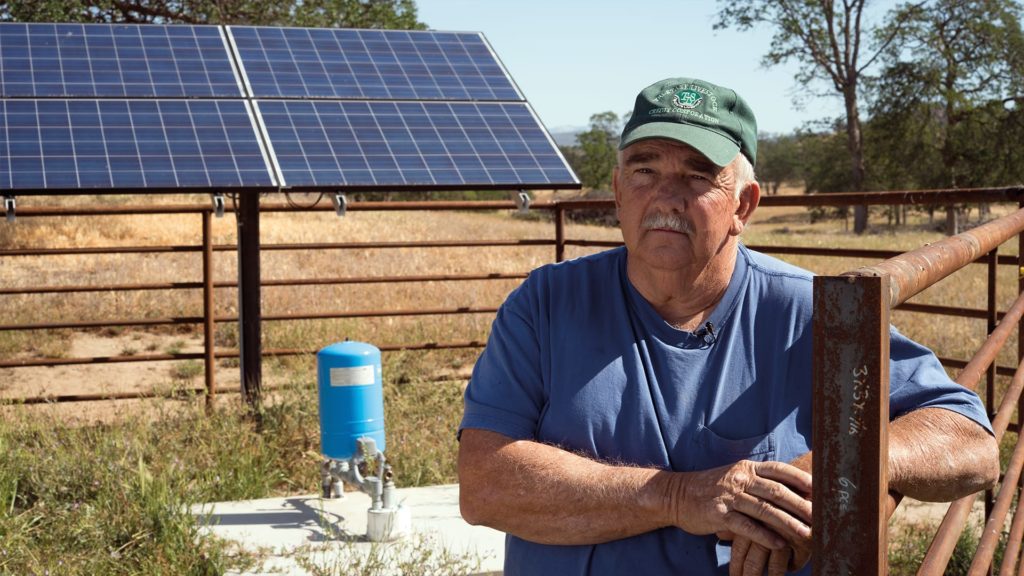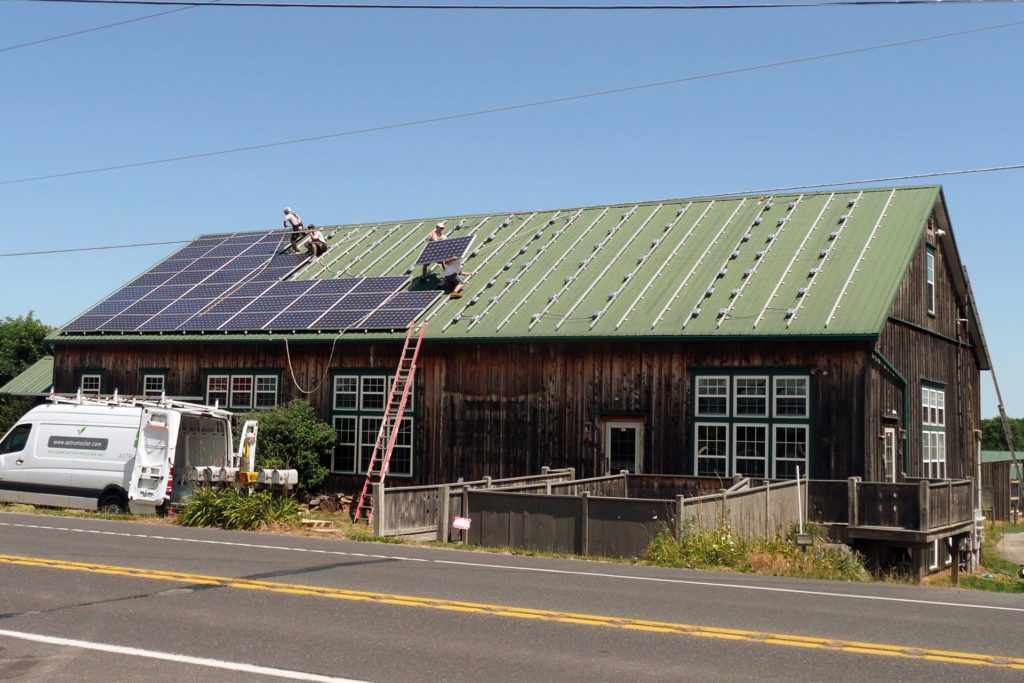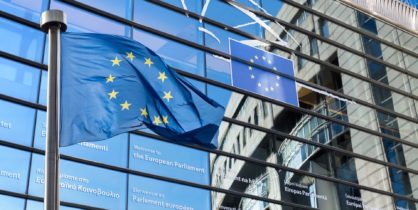The Importance of Small Business to the Energy Transition
Climate change is accelerating, which, according to scientists, reflects both our government’s and our society’s inability to full embrace the growing urgency of the climate crisis. Now, as we focus on politicians and ‘big-business’ to lead the way in the pursuit of zero-carbon emissions, it is vital that small businesses are not left behind in the energy transition.
Transforming our energy production methods is long overdue. Even though there are still significant investments in fossil fuels, public opinion in Europe leans heavily in support of renewable energy sources. According to the special EU barometer survey on climate change conducted in 2019, 92% of Europeans recognize the climate crisis and the urgency with which we need to transition to clean energy.
It is no surprise then, that the EU has responded in recent years by setting out its vision of a global energy sector based largely on renewables by 2050. The wording may be deliberately largely vague, but it represents a coordinated political effort towards cleaner, greener energy production, that is also finally seeing increased support in the United States.
Focus of the energy transition
With the public and political rhetoric surrounding ‘the energy transition’ predominantly focused on the way in which we generate energy, we are neglecting that our entire society needs significant reforms if we are to achieve zero carbon emissions. Of course, turning our back on fossil fuels is important, but changing the practices of both businesses and citizens and creating a more energy efficient society is also crucial if we are to achieve the climate targets that are now slipping ever further out of reach.

Yet if the climate goals set out in the Paris Agreement can still be achieved, energy efficiency will play a key role as we embark on this transformation. There have already been several actions from the EU related to this topic, not least the Energy Efficiency Directive first published in 2012. Energy efficiency is also recognized by 89% of EU citizens as a vital issue that needs to be reflected in government targets.
As well as the environmental benefits that come with decreased energy use, there are economic gains to be made, too. Big businesses spend billions of euros on energy each year, making energy efficiency a big business in itself.
Big businesses spend billions of euros on energy each year, making energy efficiency a big business in itself.
This is not something new. Over the last decade companies such as IKEA and Walmart have made moves to make their businesses self-sufficient in terms of their energy supply, using solar panels, biomass, and biofuel to power their operations. Now, with the increased benefit of the visibility among consumers that comes with ‘going green’, energy efficiency is more profitable than ever for big businesses.
But these businesses have both the resources in terms of capital and manpower to be able to achieve these efficiency updates to their business. As far back as 2013, global companies such as Holcim, a Swiss building materials company, were spending huge sums solely on becoming more energy efficient (Holcim were spending over €85 million on their energy efficiency department). Since 2009 Ikea has also invested over €2 billion in renewable energy and energy efficiency.
Yet while big businesses are spending big to become more energy efficient, citizens and small businesses are falling behind. According to the 2019 EU climate change survey, while many citizens are taking simple steps such as replacing light bulbs with LEDs, just 12% of citizens are taking bigger steps such as choosing cars with more efficient fuel consumption, and just 16% are installing any kind of equipment in their homes to reduce their overall energy consumption.
So, if big businesses are acting when it comes to energy efficiency, why are citizens and small businesses not taking similar action? And why are they important to the energy transition?
The heart of the European economy
Small and medium-sized enterprises (SMEs) make up 99% of all businesses in the EU, with 86% of those classified as a micro business (fewer than 10 employees). They also employ 60% of the total workforce and account for 13% of global energy demand (74 exajoules). This may appear to be a low number, but it is far from insignificant, with 74 exajoules equating to approximately 10 billion barrels of oil – annually.
Cost-effective energy efficiency measures have the potential to reduce SME energy consumption by as much as 30%, more energy than Japan and South Korea consume annually combined.
Not only would these measures represent huge savings in terms of carbon emissions, but would also be a boon financially for business that are struggling in the wake of the COVID-19 pandemic. Yet despite the benefits, many SMEs are not taking the necessary steps to take advantage of these savings.
Cost-effective energy efficiency measures have the potential to reduce SME energy consumption by as much as 30%, more energy than Japan and South Korea consume annually combined.
Barriers to energy efficiency
Data from the Carbon Trust shows that while 80% of SMEs are taking some action on energy efficiency (mainly ‘low hanging fruit’ actions such as replacing lightbulbs), over two-thirds of businesses do not have any kind of documented energy efficiency policy. Without any clear structured plan, any savings that are made will be unsustainable.
The reality is that most SMEs simply do not have the resources on their own to pursue significant, lasting energy efficiency changes to their business. They do not have specialist energy efficiency departments or managers, do not have the spare capital to invest in the infrastructure needed to maximize energy savings, and simply do not have the time it takes to implement changes to their businesses while they are struggling with the day-to-day tasks required to keep their businesses afloat.

The conclusion is: small businesses need more support to become energy efficient.
Helping SMEs find the support they need
Support programs for SMEs do exist at both the EU and national level, yet many SMEs are unaware that these programs exist, find the application processes to confusing, or simply lack the manpower to pursue the funding available.
The confusion for SMEs is hardly surprising. There are currently several directorate-generals (DGs) offering energy-related funding to SMEs in some form at the EU level. These include DG Energy, DG Environment and DG Mobility and Transport, as well as executive-agencies such as CINEA (European Climate, Infrastructure and Environment Executive Agency) and EISMEA (European Innovation Council and Small and Medium-sized Enterprises Executive Agency). Even those well versed in European politics struggle to untangle the web of agencies within the EU, so it is impossible to expect a small business to do so to get funding for potential future savings.
With this complex network of representation reflected across the EU at a national level, it becomes a significant barrier for SMEs to get access to the funding available to them.

Clear and effective policies
The EU is recognizing that more needs to be done to get clear, effective policies in place to help SMEs become more energy efficient. For example, the Horizon 2020 funded project – LEAP4SME – is working towards creating effective policies for SMEs to undergo energy audits, and in-so-doing implement cost-effective, recommended energy-saving measures.
The project recently completed its initial research, mapping SMEs in Europe, breaking down their sectors, employment levels and their total value added to the economy. Given the diversity of SMEs, from small corner shops to larger manufacturers, this is vital work if we are to be able to optimize funding pathways and unlock both future energy savings and economic benefits.
SMEs are an integral part of our economies and our communities.
In the research they found only some of the financial support instruments for SMEs specifically targeted energy efficiency. Most financial instruments fell into two categories: 1) financial instruments which support growth and competitiveness in SMEs, which can be used, amongst other things, to finance energy efficiency; or 2) financial instruments supporting energy efficiency in multiple target groups including SMEs, but also covering homeowners, large businesses and/or the public sector. This lack of focused, energy efficiency funding directed specifically to SMEs means less awareness, more complicated applications, and fewer businesses benefiting from the schemes in place.
No ‘one-size-fits-all’ approach
SMEs are an integral part of our economies and our communities. In many parts of Europe, they are the heartbeat of towns and villages and bring us all together. Supporting them in their efforts to increase energy efficiency can help galvanize these communities behind a common goal of being more sustainable in our energy usage.
Some municipalities have been trying to do just that. A study conducted in Sweden showed two examples of programs designed to help SMEs become more energy efficient and implemented by municipalities. One offered free energy audits and offered an investment plan for businesses taking part in the project. SMEs did not have to have to offer any of their own resources and the municipality managed everything every step of the way, including providing energy consultants, setting audit costs, choosing suppliers, and providing SMEs with information. This top-down method, described by participating businesses as ‘rigid’, had limited success in the uptake of energy efficiency measures.
Meanwhile a second study focused more on a network-based approach where participating businesses received an energy audit, but then analyzed each other to learn from the mistakes being made. This method, which resulted in active learning and gave each SME leadership over the process, yielded far better results than the top-down approach. Energy-saving measures that were relevant to each SME were implemented, rather than attempting a ‘one-size-fits-all’ set of changes that would have faced resistance amongst the businesses taking part.
Projects like LEAP4SME are trying to learn from examples such as these – through capacity building activities and analytical research we can better understand the needs of SMEs, and the challenges that they face. With this information policies can be developed at the EU, national and regional levels that can truly create lasting, sustainable change.
If we as a society are to truly embrace the energy transition, it is essential that we foster practices of sustainable energy use at all levels of society, from households to small business to multinationals – we all must work to create a fairer, greener society that lasts the test of time.





